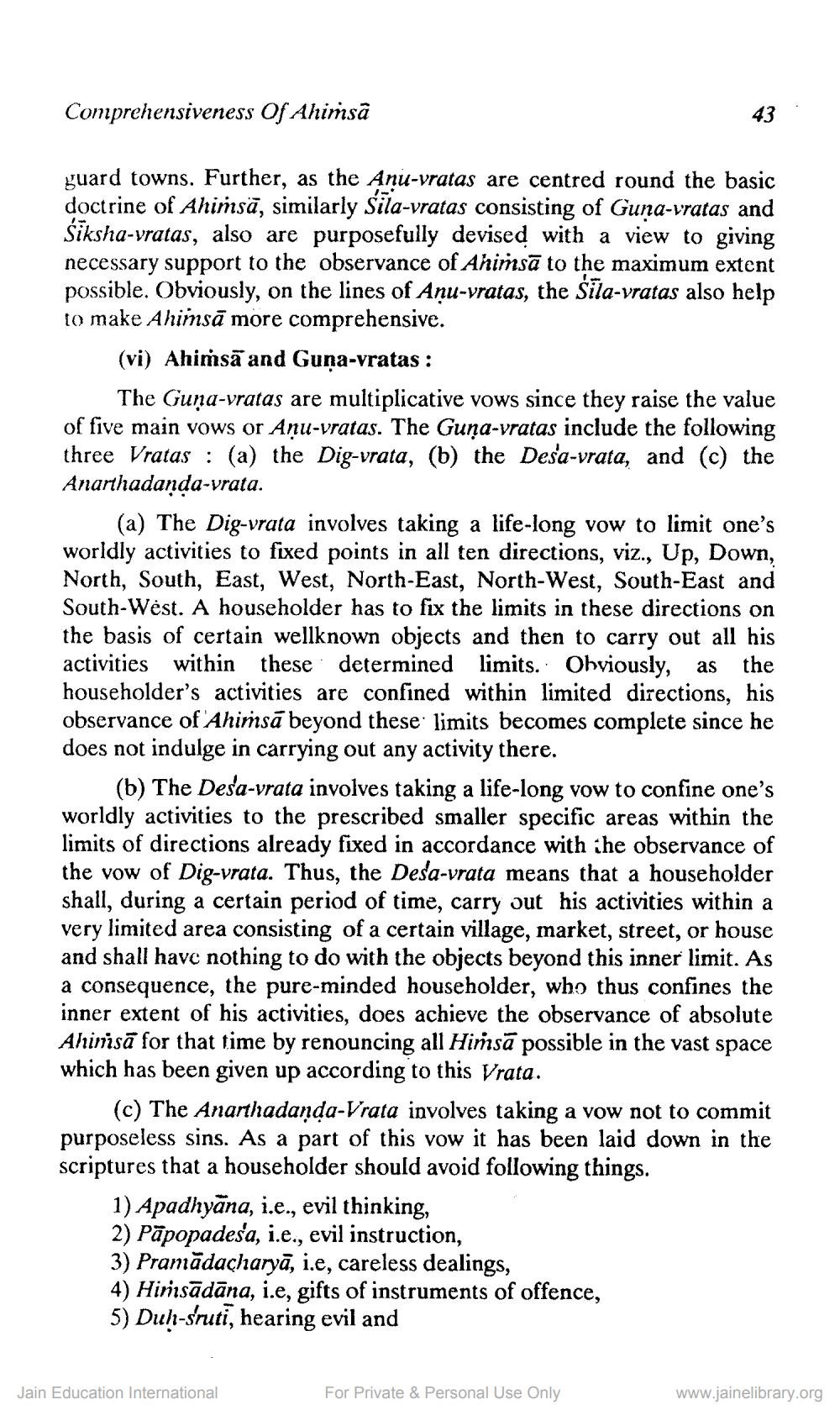________________
Comprehensiveness Of Ahimsā
43.
guard towns. Further, as the Anu-vratas are centred round the basic doctrine of Ahińsā, similarly Sila-vratas consisting of Guna-vratas and Siksha-vratas, also are purposefully devised with a view to giving necessary support to the observance of Animsā to the maximum extent possible. Obviously, on the lines of Anu-vratas, the Sila-vratas also help to make Ahirnsā more comprehensive.
(vi) Ahimsā and Guņa-vratas :
The Guna-vratas are multiplicative vows since they raise the value of five main vows or Aņu-vratas. The Guņa-vratas include the following three Vratas : (a) the Dig-vrata, (b) the Desa-vrata, and (c) the Anarthadanda-vrata.
(a) The Dig-vrata involves taking a life-long vow to limit one's worldly activities to fixed points in all ten directions, viz., Up, Down, North, South, East, West, North-East, North-West, South-East and South-West. A householder has to fix the limits in these directions on the basis of certain wellknown objects and then to carry out all his activities within these determined limits. Obviously, as the householder's activities are confined within limited directions, his observance of Ahirsā beyond these limits becomes complete since he does not indulge in carrying out any activity there.
(b) The Desa-vrata involves taking a life-long vow to confine one's worldly activities to the prescribed smaller specific areas within the limits of directions already fixed in accordance with the observance of the vow of Dig-vrata. Thus, the Desa-vrata means that a householder shall, during a certain period of time, carry out his activities within a very limited area consisting of a certain village, market, street, or house and shall have nothing to do with the objects beyond this inner limit. As a consequence, the pure-minded householder, who thus confines the inner extent of his activities, does achieve the observance of absolute Ahimisā for that time by renouncing all Hiṁsā possible in the vast space which has been given up according to this Vrata.
(c) The Anarthadaņda-Vrata involves taking a vow not to commit purposeless sins. As a part of this vow it has been laid down in the scriptures that a householder should avoid following things.
1) Apadhyāna, i.e., evil thinking, 2) Pāpopadesa, i.e., evil instruction, 3) Pramādacharyā, i.e, careless dealings, 4) Hirisādāna, i.e, gifts of instruments of offence, 5) Duh-sruti, hearing evil and
Jain Education International
For Private & Personal Use Only
www.jainelibrary.org




